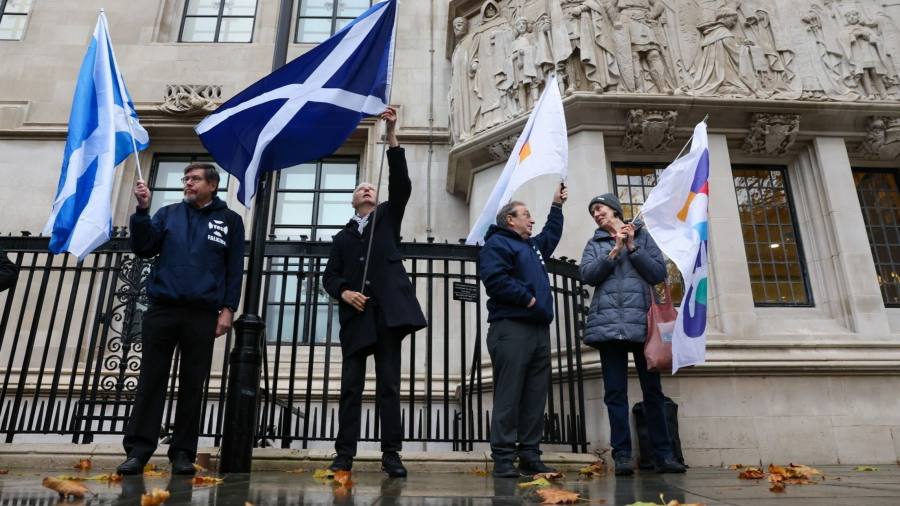
The writer, a lawyer and commentator, is an FT contributing editor
From a legal perspective, the Scottish government should be disappointed with Wednesday’s Supreme Court judgment that an independence referendum cannot be held without the consent of Westminster and Whitehall.
Nicola Sturgeon’s government wants to hold a plebiscite on the union of Scotland and England without permission from London. The court ruled that there was a serious case to be heard and the UK government’s two attempts to knock out the claim on technicalities failed. And, as with any arguable case, it could have gone either way.
Under the Scotland Act, the Scottish parliament cannot legislate on a matter where it “relates to reserved matters”, which include the union. The Scottish government contended that a referendum, which in and of itself would not be binding, did not “relate to” the union or to the sovereignty of parliament. It conceded that actually legislating for independence would relate to it, but not a mere referendum.
The Supreme Court could have taken a narrower view of what is meant by the phrase “relates to”. But it unanimously rejected the Sturgeon government’s submission, holding that a referendum “is not merely an exercise in public consultation or a survey of public opinion”. Instead, it was “a democratic process held in accordance with the law which results in an expression of the view of the electorate on a specific issue of public policy on a particular occasion”.
The proposed independence referendum would be advisory. It would not be self-executing, for it would not have immediate effect without further legislation. Nonetheless, the court judged that holding such a vote would still be a reserved matter because it would “relate to” the union of Scotland and England or to the sovereignty of parliament.
As the court also put it, “[a] lawful referendum on the question envisaged by the Bill would undoubtedly be an important political event, even if its outcome had no immediate legal consequences”. Some may think that it is no business of a court to take account of such political, non-legal factors, but the Supreme Court correctly said that the Scotland Act required it to approach the question “in all the circumstances” — even if those were not just the legal ones.
The Scottish government can be proud of how it managed to get the matter before the Supreme Court. The framing of the case was ingenious — and that the court decided the case on its merits shows that it was not frivolous or contrived. The Scottish government’s Lord Advocate, Dorothy Bain KC, was impressive in her arguments. The case could not have been put better.
This was a rare case where the Supreme Court was not sitting as an appeal court. On certain devolution questions, it is a court of first instance.
But it is also here a court of last instance. There is no appeal from the Supreme Court. The legal route to an independence referendum without the consent of Westminster or Whitehall now comes to an end. The issue returns from the realm of law to the realm of politics.
And so it is from a political perspective that the Scottish government can be heartened. Wednesday’s judgment shows the limitations of the devolution settlement. This will bolster supporters of independence, who will maintain that the decision shows Scotland is locked into a supposedly “voluntary” union with no unilateral way out.
Pro-independence supporters will also contend the judgment shows that under the law of the United Kingdom, the Scottish parliament seems to be little more than a statutory body, subject to a strict rule of ultra vires.
Supporters of Scottish independence may be disappointed by the legal decision, but they will not be disappointed by the political signal that this judgment sends.